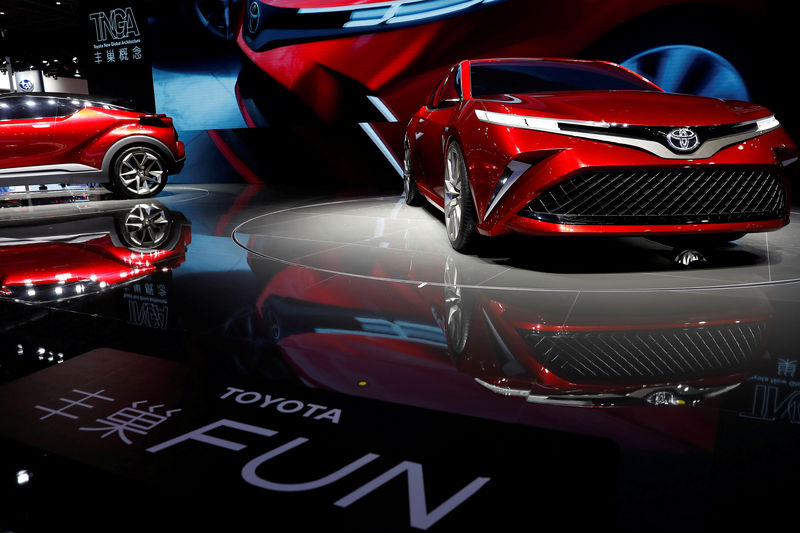By Brenda Goh
SHANGHAI (Reuters) - Automakers in China face their weakest year of sales growth in at least two decades as a phasing out of tax cuts on smaller engine cars that began in 2017 looks set to further dampen customer demand in the world's largest car market.
The incentive roll back is having a bigger than expected impact, with China's automotive manufacturers association expecting auto sales to grow around 3.5 percent in 2017, missing earlier forecasts. They are predicting 3 percent sales growth for this year, according to state media.
Its impact was reflected in 2017 China vehicle sales numbers for several global automakers.
General Motors Co (N:GM) said last week that its China sales grew 4.4 percent last year, following a 7.1 percent rise in 2016, while Ford (N:F) said on Tuesday that its sales fell 6 percent after a 11.9 percent rise in 2016.
Toyota Motor Corp's (T:7203) sales growth slowed in 2017 compared to 2016. South Korea's Hyundai Motor (KS:005380) and Kia Motors (KS:000270) have cited the tax roll back as a reason for lower 2017 sales.
"2018 will start weak - we are projecting basically another flat year in light vehicle sales...The big question is does the government step in with some tax breaks, incentives to keep things rolling?," said James Chao, Asia-Pacific chief of consultancy IHS Markit Automotive.
"I believe you'd have to go sometime before the year 2000," he said, when asked when was the last time the market posted flat growth. Two other analysts said annual growth has not been 3 percent or lower in this century.
Beijing last year began raising the purchase tax on cars with engines of 1.6 litres or less to 7.5 percent this year from a special rate of 5 percent last year, a policy that it originally launched to shore up sales in a weakening economy. It plans to return the rate to 10 percent in 2018.
Such a sales backdrop meant that competition on the ground, especially in the mid-to-high end sector, would stiffen, requiring car makers to respond more quickly to consumers' changing desires, something analysts said local and some Japanese brands could be nimbler at.
China's Geely Automobile Holdings (HK:0175), owner of the Volvo car brand, said on Tuesday that its 2017 net profit had doubled year-on-year, citing a "significant increase in sales revenue".
Further challenges will come from strict production and sales quotas for new-energy vehicles (NEV) that Beijing wants automakers to implement by 2019. The policy has to date already prompted a flurry of electric car deals and new launches of electric and hybrid models.
More companies will likely lay out their plans in 2018, said Robin Zhu, Hong Kong-based analyst at Sanford C. Bernstein.

"However for your typical consumer, besides those living in cities, there's not much buying interest. If everyone is required to manufacture NEVs, who knows who they will sell these NEVs to."